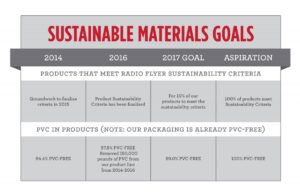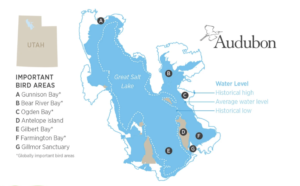
After two years of online events, our flagship conference GreenBiz will be back in Scottsdale in just a few weeks. In bringing our community back together, we haven’t only updated our health and safety protocol but also our catering policy. As we love analyzing sustainable diets and keeping other event organizers on their toes, we figured it’s about time for us to walk the talk.
It’s not as if GreenBiz hasn’t thought about sustainable catering until now. In 2015, we stopped serving red meat, started donating surplus food to nearby charities and other organizations and eliminated single-served and plastic-packaged foods.
When we assess other companies’ sustainability progress, however, evidence of continuous improvement is a major consideration. Seven years have passed since adopting those measures and the climate crisis has been intensifying. It’s fair to say that an update has been overdue.
So what’s new? We’re doubling down on the elephant in the sustainable fridge — meat and other animal products — while maintaining our zero waste policy. Going forward, our menus will be 75 percent plant-based and 25 percent vegetarian. In addition, we’ll apply a default vegan approach to suitable vegetarian dishes. Example: Instead of serving enchiladas with melted cheese on top, we’ll serve the cheese as a condiment on the side, normalizing the more sustainable option.
Knowing that our audience is a curious bunch, we prepared an FAQ on our reasoning behind this update. Happy exploring!
Why does GreenBiz promote plant-forward diets?
Moving from animals to plants is one of the most effective climate actions we can take. Along the way, it benefits human health, animal welfare and conserves biodiversity and water. Compared to current diets, one study estimates that adopting a healthy vegan diet globally by 2050 would cut food emissions by 70 percent and diet-related deaths by 10 percent. Why?
The food system accounts for more than a quarter of global greenhouse gas emissions.
Even if fossil fuel emissions were eliminated immediately, food alone would make it impossible to limit global warming to 1.5 degrees Celsius. Most food system emissions come from livestock — primarily via methane-belching cattle and by converting native ecosystems to cropland that grows animal feed or serves as cow pastures. Animal agriculture is also hugely inefficient. Livestock takes up 77 percent of the earth’s agricultural land while producing merely 18 percent of the total calories and 37 percent of protein.
If the benefits of plant-based foods are so great, why aren’t you going fully vegan?
Our food service partners have varying levels of experience when it comes to vegan and vegetarian food. Asking them to go fully vegan off the bat for groups of several thousand people isn’t a smart risk to take. Serving bad vegan food is perhaps the worst thing we could do — a negative experience could prevent our attendees from further venturing into the plant-based world when returning back home to their teams and families.
Going forward, our menus will be 75% plant-based and 25% vegetarian.
By starting smaller and doing it well, we believe that we can bring a larger portion of our community along, thus having an overall greater impact than a strict vegan strategy might achieve. The larger variety of plant-forward menus — which include vegan and vegetarian dishes — can also accommodate more dietary restrictions. As we and our partners gain more experience, we’ll feed it into our longer-term strategy of continuous improvement.
What about sourcing sustainably produced meat instead?
Even the most sustainably produced animal proteins tend to have a larger carbon footprint than plant-based equivalents. What we eat matters much more than how it is produced. First and foremost, people need to significantly reduce their consumption of animal foods. But such dietary change isn’t happening fast enough, which is why we’re centering our efforts on it.
While some indigenous practices and more recent regenerative approaches to animal husbandry show that livestock can play a role in maintaining or restoring soil health in certain ecosystems, the evidence is by no means conclusive. To what extent such practices can be scaled and verified products sourced for the kinds of large events we organize is another question. Despite those uncertainties, an increasing number of climate-neutral meat claims (especially for beef) are already popping up, most of which we’d file in the greenwashing drawer. Separate from environmental impacts, we also want to respect animal rights.
Is your food also local, seasonal, fair, organic, regenerative, climate-neutral, healthy, tasty, circular …?
We love that you appreciate the complexity of making better food choices. In an ideal world, our dishes would be all of the above. For now, our meals will be nutritionally balanced and we sure hope they will be tasty. We are a small team, organizing events in different cities and with a range of catering partners, which means that we simply don’t have the capacity to do it all. That’s why we’re tackling animal products and waste first — food’s carbon heavyweights. But in the spirit of continuous improvement, we’ll work on integrating more and more of the other attributes over the coming years.
Source: https://www.greenbiz.com/article/were-making-cheese-optional-heres-why









